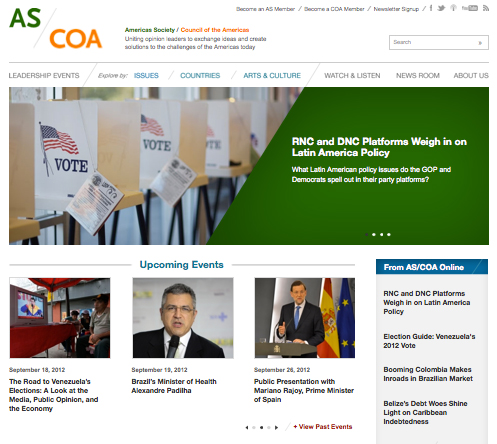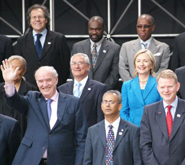La Nación, El Mercurio, El Tiempo, El Universal | Cerremos la brecha de género en el mundo empresarial de América Latina
/Al conmemorar el Día Internacional de la Mujer, hay buenas razones para celebrar los avances en América Latina. Cuando se trata de elevar a las mujeres a puestos de liderazgo político, la región está a la cabeza. Chile, Colombia, Costa Rica, Perú y México han logrado o están cerca de lograr la paridad de género en sus gabinetes. Las mujeres representan el 35% de los legisladores nacionales en las Américas, superando a todas las demás regiones del mundo excepto los países nórdicos. Mientras tanto, Estados Unidos sólo está reduciendo ese promedio, ubicándose en el puesto 71 de 184 países y con más de una docena de naciones latinoamericanas y caribeñas ocupando puestos más altos en una lista de la Unión Interparlamentaria. Perú, Honduras y Trinidad y Tobago están en el pequeño club de 26 países en todo el mundo con mujeres como jefas de estado. Argentina, Brasil y Chile han tenido mujeres presidentas y es casi seguro que los mexicanos elegirán a la primera en junio.
Pero si hay motivos para alegrarse en el caso del sector público de la región, hay mucho menos que celebrar cuando se trata del liderazgo femenino en el sector privado.
En el caso de la alta dirección, un informe de Deloitte de 2022 encontró que las mujeres de la región ocupan apenas el 1,6% de los puestos de directora ejecutiva. En el frente de las juntas directivas, América Latina va a la zaga, con una representación general de sólo el 14,5%, según un estudio de 2023. Las economías más grandes de la región, entre ellas México (10%), Chile (17%), Brasil (19%) y Colombia (21%), están detrás de Estados Unidos (31%), donde las empresas también tienen trabajo por delante para lograr la paridad.
Read More





